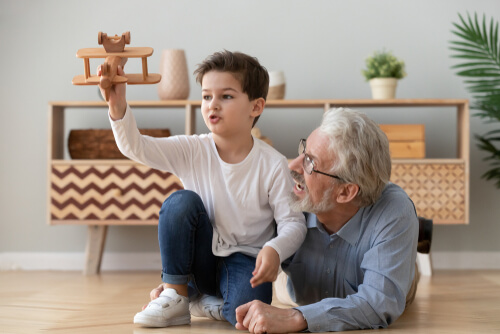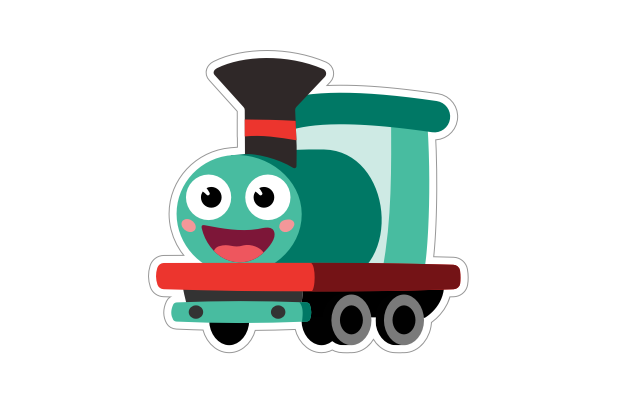The Power of Play: How Games Can Help Your Kid Thrive
Feb 14, 2022 Play is a powerhouse for learning and language. When your child is lost in a pirate adventure game, building towers with determination, rolling cars under the sofa, or unpacking the contents of your bag, they are exploring the world and discovering new and exciting things.
Why is child play so important?
Play creates the perfect opportunity for learning more language. Whether it is finding new objects, learning new actions, experiencing new sensations, these all support the development of early communication, nouns, verbs, and concepts. Not only this, but when it involves another person, suddenly greetings, jokes, sharing, turn-taking, emotions, questions, requests, and rejections come into play (literally). And this is just the tip of the iceberg.
Whereas as adults, we might read, watch, ask, and Google to learn, children play. It exposes them to ideas and concepts they may not have yet experienced in real life . . . flying a plane, building a castle, or making a cup of tea. All of this allows them to discover and practice new words, sentences, and types of communication.
How do you start playing with a child?
Start with what you already have. You do not need new or fancy toys, in fact, you do not need any toys at all. Some of the best play we see is with the simplest objects you can find in any house. In fact, too many toys and too much choice can often be a distraction. So pick some ideas from the list below with some simple objects from your house and make a start.
Start with what you already have. You do not need new or fancy toys, in fact, you do not need any toys at all.
When to play with your child?
Right away. It is never too late or too early in your child’s life to start introducing more play. It might be useful to consider time of day depending on the age and routine of your child, however we have found that incorporating play into the things you already do is the most successful way forward, for example at bath time, when you are getting them dressed and in the car, etc.
How to use playtime for language development?
Often the best way to support your child’s language through play, is to play with them. This often means turning off the TV, putting the phone away, sitting down on the carpet, and getting stuck in with what they are doing. Some children actively seek out a play partner, while some children prefer to play alone. Either way, below are some tips for getting involved with play and ideas of what you might do . . .

Top Tips for Fun Playtime
- Join them where they are. This may mean sitting on the floor, squeezing behind the sofa, or joining them on the climbing frame. Wherever your child is, join them.
- Join in with what they are doing. Try not to lead the play yourself. Instead look at what they have chosen to do and join in with it, whether that is rolling cars, removing the cushions from the sofa, splashing in the bath or emptying all the bricks from the box.
- Watch and listen. As adults we often do a lot of the talking, especially if our child has limited language. Watch and listen to see how and what they are communicating and try and match what they are doing. For example, if they are using pointing and gestures, use pointing and gestures, if they are using single words, use single words, etc.
- Model, model, model. Once you have got the hang of matching your communication to theirs, you can have a go at modelling the next step up in communication. For example, if they are using gesture and sign, model simple single words. If they are using single words, model two-word phrases, if they are using two-word phrases, model three-word phrases, etc.
- Go with their flow. If they move on to play with something else, go with them. If they use a toy/object in a new way, go with it.
- Screen time can be speech time. If they are used to spending play time on a screen, use interactive apps like Speech Blubs to make this time fun and rich in language. If they want to watch something, watch it with them and talk about it together.

Playtime Ideas for Your Toddler
Ready, Steady, Go
Find a toy/object, hold it where your child can see it, say “ready . . . steady . . . GO!” and let the toy/object fly, roll, drive, splash, flash, etc. For example, letting a ball roll, pushing a car down a ramp, pouring water in the bath, blowing bubbles. The more exciting the better! Model this multiple times, letting them join in the actions and shouting “GO!” at the right moment.
Every Day Routines as Child Play
Create play and opportunities for interaction in everyday routines. For example, hide the clothes they will be wearing today in different parts of the room, then have fun finding them together. It’s hide and seek while getting dressed!
The Magic of Movement
Adding language and fun to movement. This is especially good with children that find sitting still tricky. For example, when climbing up stairs, try singing songs, counting numbers, naming animals, and making silly noises.
Keep it Old School
Mix up well known games, for example, ‘Eye Spy.’ Give a clue to your partner of something that you can see and wait for them, if they can guess it. Instead of just giving the first letter as a clue, name the color or category, or what the word rhymes with.
Get Your 7-Day Free Trial to Play with Speech Blubs
Boost Your Child’s Speech Development!
Improve language & communication skills with fun learning!

Speech Blubs App has plenty of vocabulary activities for your child to choose from, which encourages them to communicate intentionally by selecting what they would like to do and by working through the different situations in each of our “games.” By doing this, your child will learn and understand several familiar words and use them to initiate communication in new situations. Get your 7-day free trial and start playing today!
